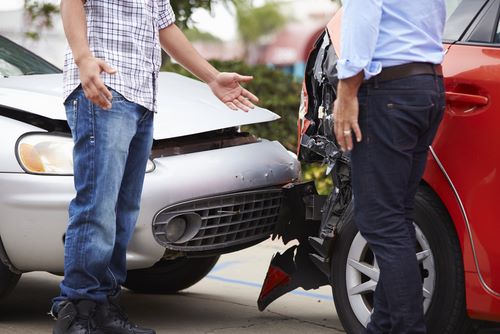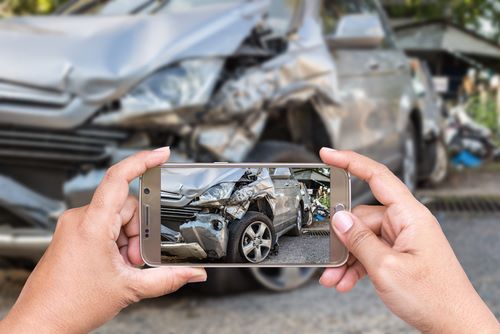If you have ever been involved in a car accident, you know that nobody ever wants to take responsibility for the crash. Typically, the drivers involved point the finger at each other, denying that they were at fault. The truth is that it is very rare for one party to be 100% at fault. Even if one driver was the primary reason the accident happened, the other driver probably made mistakes too. Your Augusta car accident attorney understands this. They also understand how to determine fault in Augusta if your case goes to court.
As hard as it can be to pinpoint the exact cause of a car crash, it’s something that has to be done. Whether your case goes to trial or not, your injury lawyer in Augusta, Georgia will need to demonstrate that you’re entitled to damages. Part of that is proving negligence on the part of the other driver.
If you can’t determine fault in Augusta, you won’t receive any compensation. Thankfully, your attorney understands how to show who was at fault and by how much. This is just one reason why it’s in your best interest to retain an experienced Augusta car accident attorney.
Proving Fault is Part of Proving Negligence
In almost every personal injury case, the plaintiff has to prove negligence. There are some cases in which the defendant’s actions were so reckless that it’s obvious who was at fault. For the most part, however, your car accident attorney will have to demonstrate fault in Augusta and more specifically, that the other driver did not use reasonable care while driving their car.
In order to determine fault in Augusta, your lawyer will need to demonstrate the following four things:
- The defendant owed you a duty of care. This is a given in car accident cases. All drivers owe the other people on the road a duty of care. At a minimum, this requires that they follow all the traffic laws and regulations. For example, if the defendant ran a red light and slammed into the back of your car, they will have violated the traffic laws of Georgia.
- The defendant breached this duty of care. In order to prove breach, your injury lawyer in Augusta, Georgia will need to demonstrate that the defendant did something they shouldn’t have done. In the above example, proof of the other driver running the red light would be enough. You can prove this by submitting a photo from an intersection camera. Or you could find eyewitnesses who saw the crash and ask them to testify on your behalf.
- You suffered damages. It’s not enough to prove you were involved in a car crash. If you weren’t hurt and didn’t suffer actual damages, you don’t have grounds to sue. Of course, economic damages do count. So, if your car was totaled in the crash, the other driver’s insurance policy would have to cover the cost of a replacement vehicle.
- Your injuries were caused by the defendant’s breach. This is also a rather easy element to prove. Unless the defendant’s attorney can prove that you were hurt before or after the accident, your lawyer won’t have a hard time demonstrating this fourth element.
Once you have proven all four of these elements, it’ll be up to your Augusta car accident attorney to prove how much you are entitled to. This will depend on two things: your total damages and your percentage of fault.
How Does Comparative Fault Work in Georgia?
Georgia has its own laws when it comes to determining damages. It is one of the many states that follow something called “modified comparative negligence.” This simply means that a plaintiff’s damages will be reduced by their percentage of fault. As long as you are less than 50% at fault for your car crash, you’ll still be entitled to damages.
Imagine that you’re involved in a rear-end car accident. In these cases, the rear driver is almost always found to be at fault. It’s a general rule of law. However, if the defendant can prove that your brake lights were out, there’s a good chance you’ll be held partly liable. Your fault will be determined by the court (or negotiated by your lawyer and the insurance company in a settlement.)
In the rear-end car accident scenario above, your fault would probably be found to be 25%. This means that your damages would be reduced by 25%. Instead of being paid $100,000, you would only receive $75,000. This is just an example. In the real world, situations are often a lot more complicated than the example used here and it is often more difficult to determine fault in Augusta, Georgia.
What Kind of Evidence Can Your Lawyer Use to Determine Fault in Augusta?
In order to demonstrate that you were the victim in your car accident and to determine fault in Augusta, Georgia, your injury lawyer will have to present evidence. This evidence can take many forms. Some of the types of evidence you may submit in court include the following:
- Videos or pictures that captured the accident
- Eyewitness testimony
- Statements made by you or the other driver
- The opinion of the police officer who investigated the crash
- Your mechanic’s estimate and professional opinion
- The testimony of an accident reconstruction specialist
It can be rather expensive and time-consuming to track down all of the evidence needed to determine fault in Augusta and prove your case. This is just one of the reasons why more than 95% of car accident cases in Georgia settle out of court. It’s also a reason why you should entertain a settlement in your case.
Reach Out to an Experienced Augusta Car Accident Attorney
If you or your loved one have been hurt in a car crash, you should contact our office immediately. Before the insurance company gets a chance to deny your claim, you’ll want to have legal counsel by your side to help you determine fault in Augusta. Our experienced Augusta car accident attorneys can help.
The best thing to do is call our office today and schedule your free, initial consultation. Let a skilled injury lawyer in Augusta, Georgia review your case and give you their opinion of what it’s worth. They can answer any questions you may have and let you know how best to proceed.



